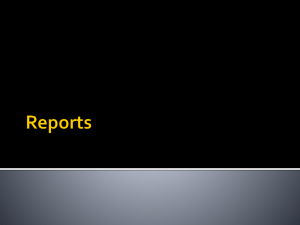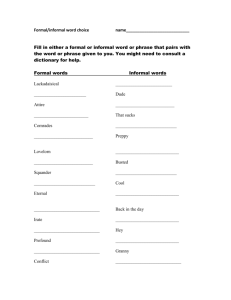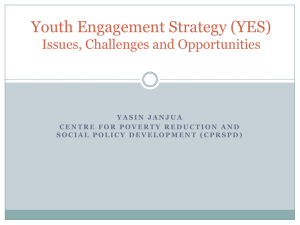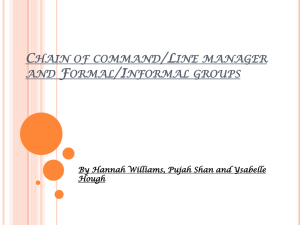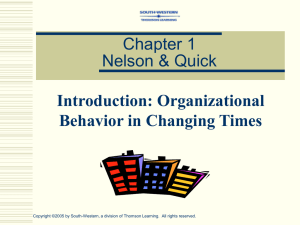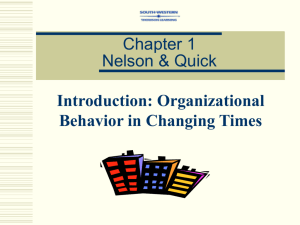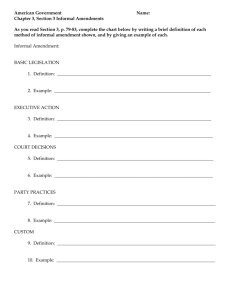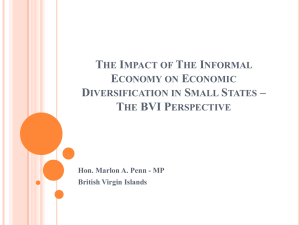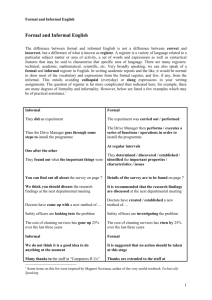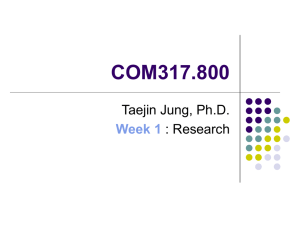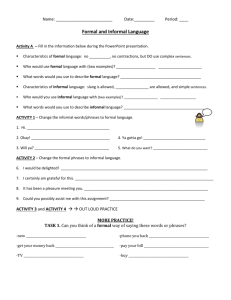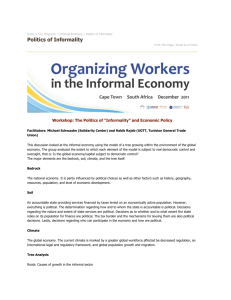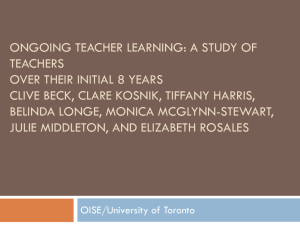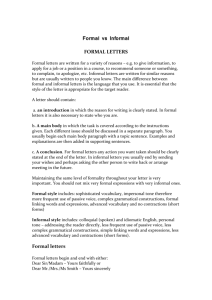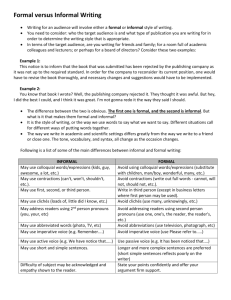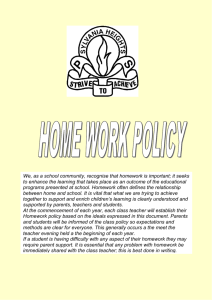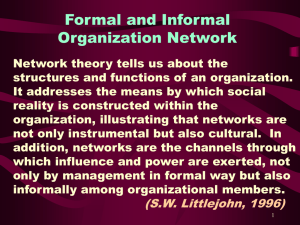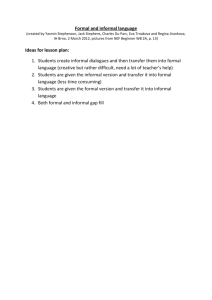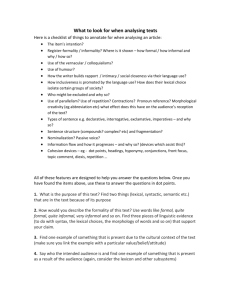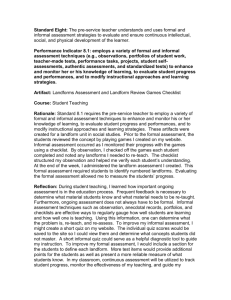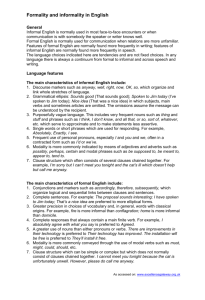TAKING STOCK OF YOUR CAREER:
advertisement
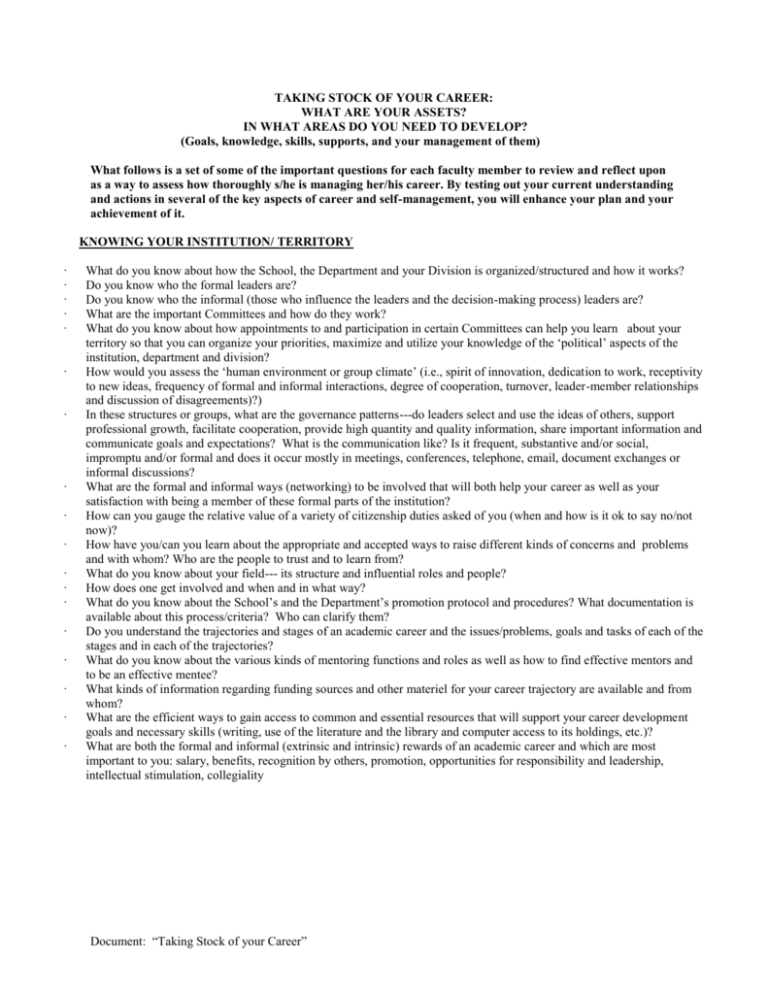
TAKING STOCK OF YOUR CAREER: WHAT ARE YOUR ASSETS? IN WHAT AREAS DO YOU NEED TO DEVELOP? (Goals, knowledge, skills, supports, and your management of them) What follows is a set of some of the important questions for each faculty member to review and reflect upon as a way to assess how thoroughly s/he is managing her/his career. By testing out your current understanding and actions in several of the key aspects of career and self-management, you will enhance your plan and your achievement of it. KNOWING YOUR INSTITUTION/ TERRITORY · · · · · · · · · · · · · · · · · · What do you know about how the School, the Department and your Division is organized/structured and how it works? Do you know who the formal leaders are? Do you know who the informal (those who influence the leaders and the decision-making process) leaders are? What are the important Committees and how do they work? What do you know about how appointments to and participation in certain Committees can help you learn about your territory so that you can organize your priorities, maximize and utilize your knowledge of the ‘political’ aspects of the institution, department and division? How would you assess the ‘human environment or group climate’ (i.e., spirit of innovation, dedication to work, receptivity to new ideas, frequency of formal and informal interactions, degree of cooperation, turnover, leader-member relationships and discussion of disagreements)?) In these structures or groups, what are the governance patterns---do leaders select and use the ideas of others, support professional growth, facilitate cooperation, provide high quantity and quality information, share important information and communicate goals and expectations? What is the communication like? Is it frequent, substantive and/or social, impromptu and/or formal and does it occur mostly in meetings, conferences, telephone, email, document exchanges or informal discussions? What are the formal and informal ways (networking) to be involved that will both help your career as well as your satisfaction with being a member of these formal parts of the institution? How can you gauge the relative value of a variety of citizenship duties asked of you (when and how is it ok to say no/not now)? How have you/can you learn about the appropriate and accepted ways to raise different kinds of concerns and problems and with whom? Who are the people to trust and to learn from? What do you know about your field--- its structure and influential roles and people? How does one get involved and when and in what way? What do you know about the School’s and the Department’s promotion protocol and procedures? What documentation is available about this process/criteria? Who can clarify them? Do you understand the trajectories and stages of an academic career and the issues/problems, goals and tasks of each of the stages and in each of the trajectories? What do you know about the various kinds of mentoring functions and roles as well as how to find effective mentors and to be an effective mentee? What kinds of information regarding funding sources and other materiel for your career trajectory are available and from whom? What are the efficient ways to gain access to common and essential resources that will support your career development goals and necessary skills (writing, use of the literature and the library and computer access to its holdings, etc.)? What are both the formal and informal (extrinsic and intrinsic) rewards of an academic career and which are most important to you: salary, benefits, recognition by others, promotion, opportunities for responsibility and leadership, intellectual stimulation, collegiality Document: “Taking Stock of your Career” KNOWING AND DEVELOPING YOUR SELF: SELF-HELP Self-Management (learning to do usually untaught things): · What are your current and future goals (both career and personal)? · What are your greatest strengths and least strengths and how do you make this assessment? · How do you prepare for your Annual Review meeting with you Division Director? · What are your work styles, preferences and habits and what feelings and results do you get when you use each of them (assuming you have more than one)? Task Management (making and/or breaking habits, getting organized and getting things done on time) · What do you want to accept versus change about your work habits and styles (e.g., Abingeing@ or carrying out vital tasks in large blocks of time; complaining of busyness, over-preparing for teaching, presentations, etc.) · What skills do you need to learn and/or improve (goal-setting, writing, negotiation and conflict management, collaboration, presentation, etc.) Social Management (understanding social networks, putting oneself in the place of another and solving communication problems) · Are you on track for your own and others= expectations and how do you know it? · Do you keep regular documentation or ‘catalogues= of key information needed for your career and your activities? · What social and professional networks are you exploring? What networks are you part of both within your field, within your Institution? · How do you manage balance in work/life areas? How do you balance autonomy as well as commitment to others? Skills in Scholarship · How good are you at asking important and testable questions? How can you improve? · Do you practice appropriate and effective methods in the stages of inquiry appropriate to your area? In-Depth Knowledge of Your Area · Are you familiar with all major published and otherwise presented works in your area; current major projects being conducted, key people, predominant funding sources? · Do you have productive local and national peer support for helping you develop your knowledge base? Much of this material is directly from and/or adapted from Mentor in a Manual: Climbing the Academic Ladder to Tenure. A. Clay Schoenfeld and Robert Magnan. Magna Publications, Inc., Madison, WI, 1994. Prepared by Emma J. Stokes, Ph.D., Johns Hopkins University 2001 Document: “Taking Stock of your Career”

